Exclusive Reveal: No Such Thing as Duty
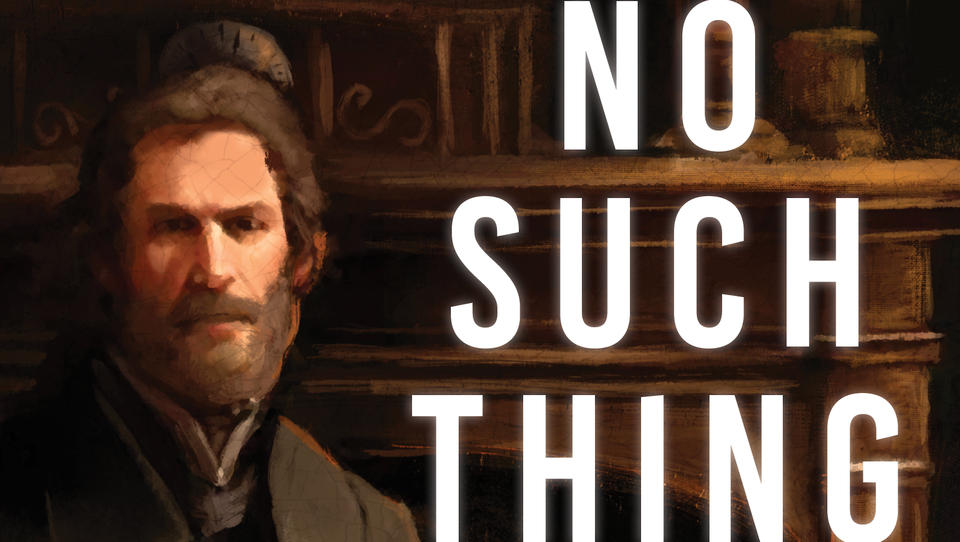
In the waning days of World War One, William Somerset Maugham—novelist, playwright, and spy—is sent to Romania to serve allied interests in the fight against Austro-Hungary while dying of tuberculosis. His handler sets him to recruit mysterious Carpathian nobleman Walter Roşu to the cause. But Roşu is more interested in William than the war, and William struggles to fulfill his duty in the face of death and desire.
No Such Thing as Duty releases on April 8 as part of Neon Hemlock's sixth novella series. You can pre-order it here or sign up to be notified when the entire novella series launches on Kickstarter.
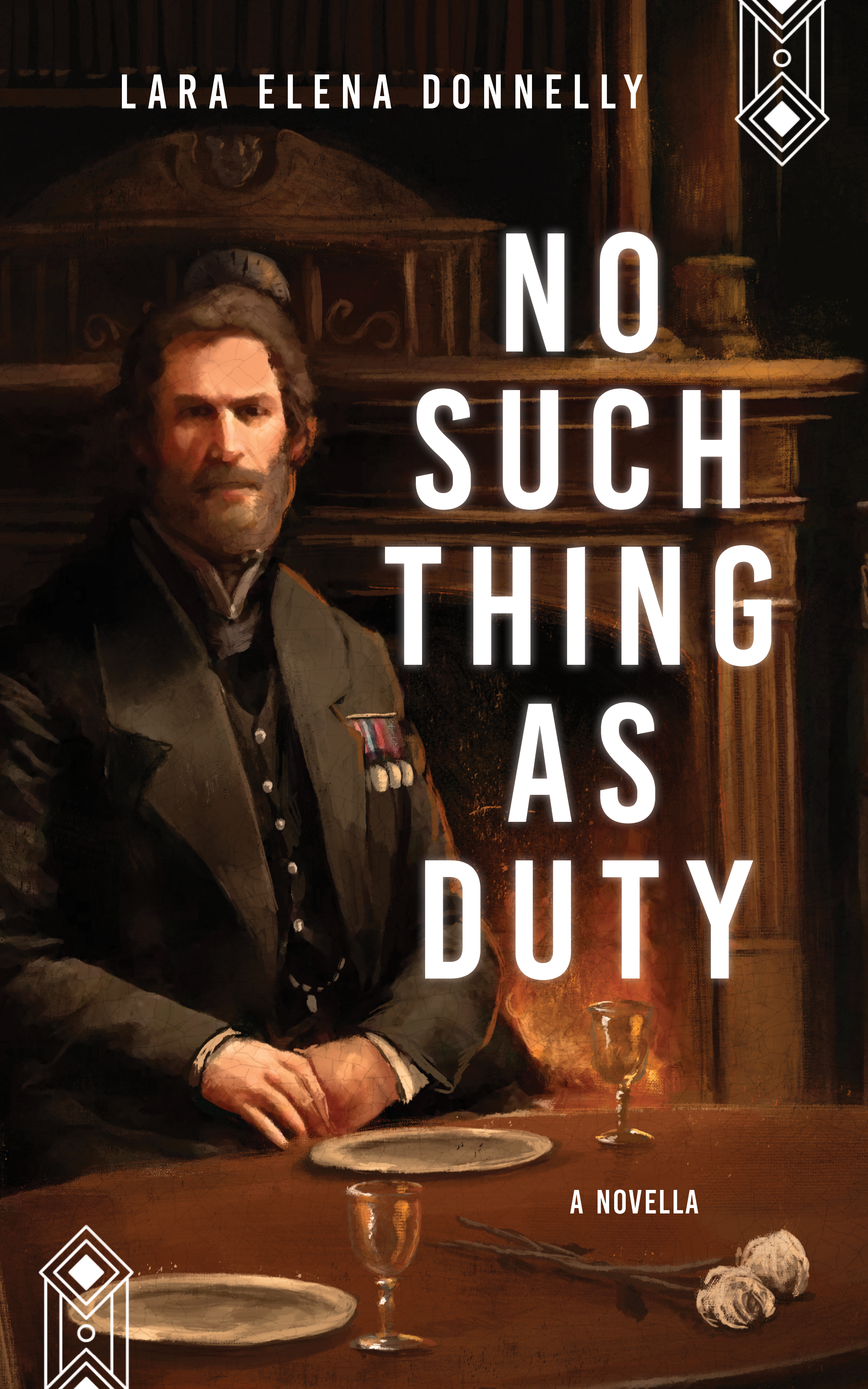
Managing Editor of Neon Hemlock, dave ring, sat down with Lara Elena Donnelly to talk about her upcoming release, No Such Thing as Duty.
dave: The novella No Such Thing As Duty, is set in a Very Particular time and place. It also takes an actual historical figure as its protagonist. What sort of research did you do to write it? What sort of challenges did you come across in getting the details “right”?
Lara: Okay well first of all, the main challenge is the internet sucks now! It’s really hard to find good stuff. Google is bad and websites are full of slop. (Though libraries definitely still rock—shout out to libraries that help their patrons access academic databases!)
A lot of the research I did for this was in books or conversations with real live human beings. The story was inspired by The Secret Lives of Somerset Maugham, a biography by Selina Hastings that I was reading just for fun. Once I started straying off the beaten path of history, I realized I had to learn about a lot of things unrelated to bisexual playwrights: namely, Romania’s role in World War I.
Romania was strategically very important in the war. You wouldn’t really know this from a casual google. And what you can find didn’t really answer my annoyingly specific questions—what money were people using once the Germans occupied the country? Were people still using the leu? How did Romanians interact with German occupiers? Could you get across the border on a train? Could you drive from Iaşi to Bucharest? If so, how many checkpoints were on the road? Who was manning them?
I picked up a book called “The Unknown War” from Eastern Europe, a discouragingly dense volume that nonetheless proved exceedingly useful for one annoyingly technical paragraph in the beginning of the story, and gave me new search terms to explore.
Somewhere in all my digging, I encountered an article called "British Adventurers and Revolutionary Russia’s War over Bessarabia," by Professor Geoffrey Swain. Thank god for university professors who make their emails accessible to the public. We ended up corresponding about when and where Maugham would have been in Romania, which was hugely helpful in narrowing down my time scale.
A lot of the information I wanted to access was, unfortunately, in Romanian. Someone had helpfully translated a piece from a Radio România Internațional about Russian deserters that was useful. Even better, another translated transcript from RRI featured an interview with Professor Sorin Cristescu. When I tracked down his email he proved to be my number one most useful resource.
There are also details I could only fill in with the help of German speakers and military history hobbyists I contacted via DM in the waning days of Twitter. Sometimes there’s just no substitute for the specialized knowledge of real live human beings who can answer your finicky questions.
dave: You’ve famously never written a novella before, but No Such Thing As Duty is, unequivocally, a novella. Did the length teach you anything about storytelling? Any craft-based epiphanies?
Lara: Wow, I’m famous for never having written a novella before this? I didn’t even know you could be famous for that.
Before writing this novella, I was like “what even IS a novella? What does it do?” A friend pointed out most fan fic, if it isn’t 250k or more, is usually novella length, from which I extrapolated that what a novella does is mainly talk about feelings. It’s the right length for complicated emotions hung on a rather slender plot.
Having written one now (and having written a fair amount of self indulgent fanfic over the years), what I’ve realized is they don’t require you to come up with the beefy, complex content of a novel, but they don’t require the discipline and grace of a short story either. They’re follies. They’re little weekend cottages embellished with elaborate gingerbread. They’re not really big enough to be practical or livable long term, but they certainly give the architect an excellent opportunity for decoration.
They’re the girl dinner of fiction. A hefty charcuterie board. CaeSal with fries and a martini. They’re not a full meal, and they’re not exactly a light snack either.
I mean all of this with affection. I think we all need more charcuterie boards and pointless decorations in our lives.
dave: Spoilers, but this novella is also a vampire story. What are some of your favorite vampire tales? Is this book in particular conversation with any of them, or any other stories?
My ride-or-die vampire story is Elizabeth Bear’s New Amsterdam. It’s sexy, it’s chic. It’s a procedural and a drama and alt history and romance. There’s sex and murder and awful exes. But please don’t read it because then my entire writing career will be like, embarrassingly blown up as merely New Amsterdam pastiche. I imprinted hard on it as a young person.
Even younger than that I read way too many of the Anne Rice Vampire Chronicles, and I am so pleased with the adaptations we’re getting now; absolutely unhinged television that is also somehow art. I cannot wait for season three. Give me the brat prince! Give me old man vampire Eric Bogosian! Give me more Armand!
Is this book in conversation with either of those pieces of media? Hell no. Or…I don’t know, inasmuch as all vampire media is stealing from itself, sure. But I broke a couple of the modern vampire canon rules and I kept some things I liked. I guess if we’re in conversation with anything here we’re sort of in conversation with Dracula, which as far as I know is the sort of wooly, accidental origin of the idea that Vlad III, Voivode of Wallachia, was/is an undying, bloodsucking fiend, rather than a national hero, or at least an interesting historical figure.
Maybe we’re in conversation with the idea that, to most Western audiences, Romania is “that place with vampires.” I’m as guilty as the next person–after all I came up with this novella premise. But the research adventures I had writing this made it clear to me that there is a lot more going on in the history of Romania than Vlad the Impaler (and a lot more about Vlad the Impaler than Bram Stoker’s poorly researched caricature). The most fun I had with this novella wasn’t actually the vampire–it was the small moments in daily life (more than!) a hundred years ago, the historical detail, and the discoveries I made about a place and time I hadn’t known much about before.

Lara Elena Donnelly is the author of Base Notes and the Amberlough Dossier, and a co-founder of the small press Homeward Books. She lives in Harlem with a fashionable film buff and a talking cat.
If you’re a paying subscriber, come say hello in the Supper Club and share the ways you’re connecting with and supporting your local community. Remember to drop your local mutual aid networks so we can put them in future issues of the Digest.
If you want to support Stone Soup without a regular subscription, feel free to drop a one-time donation into our tip jar.
In the meantime, do what you can. Care for yourself and the people around you. Believe that the world can be better than it is now. Never give up.
—gailey

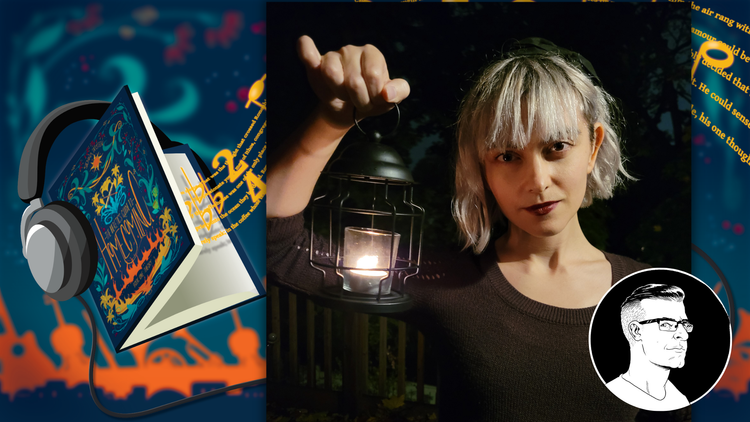
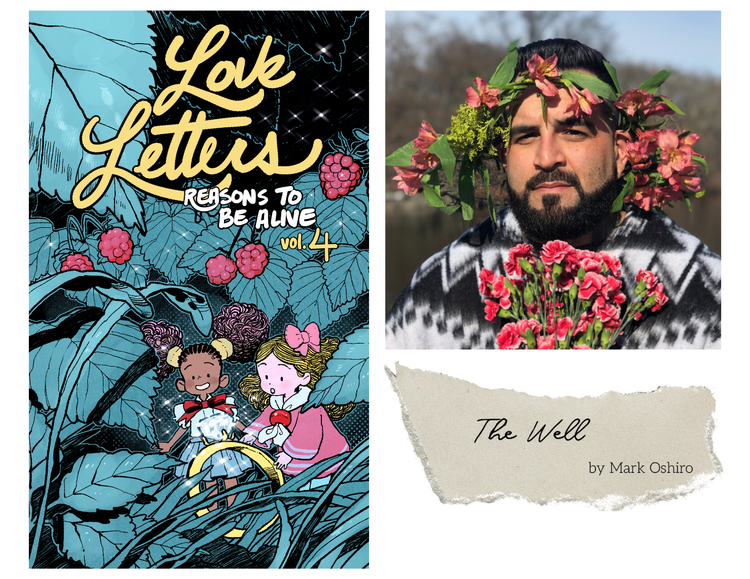

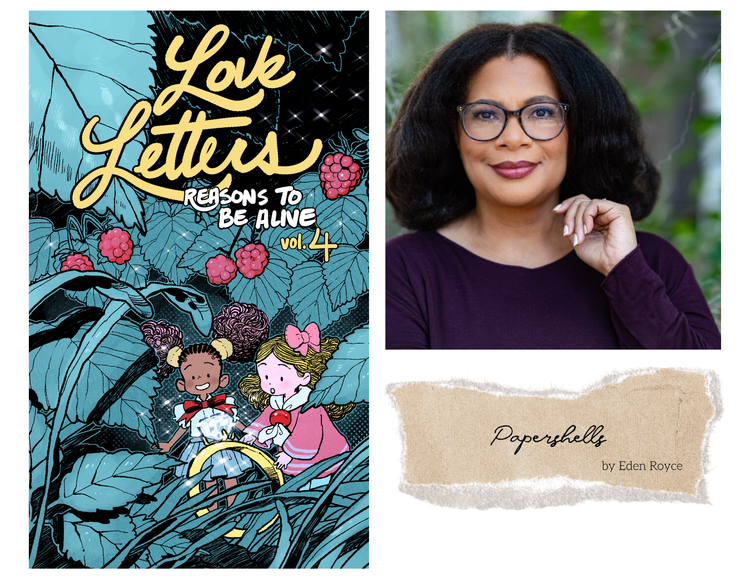
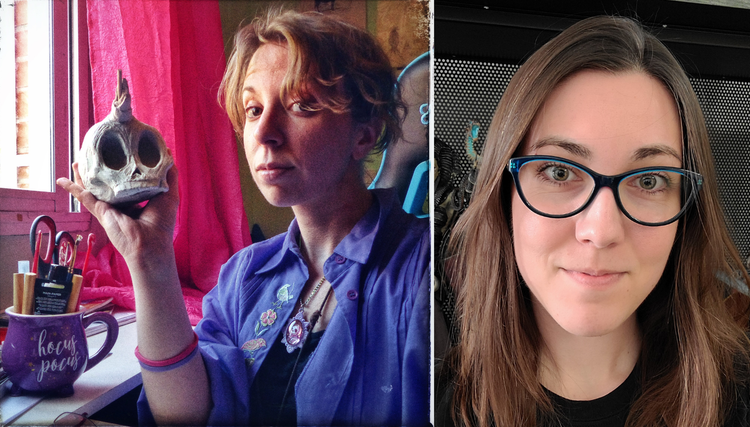
Member discussion